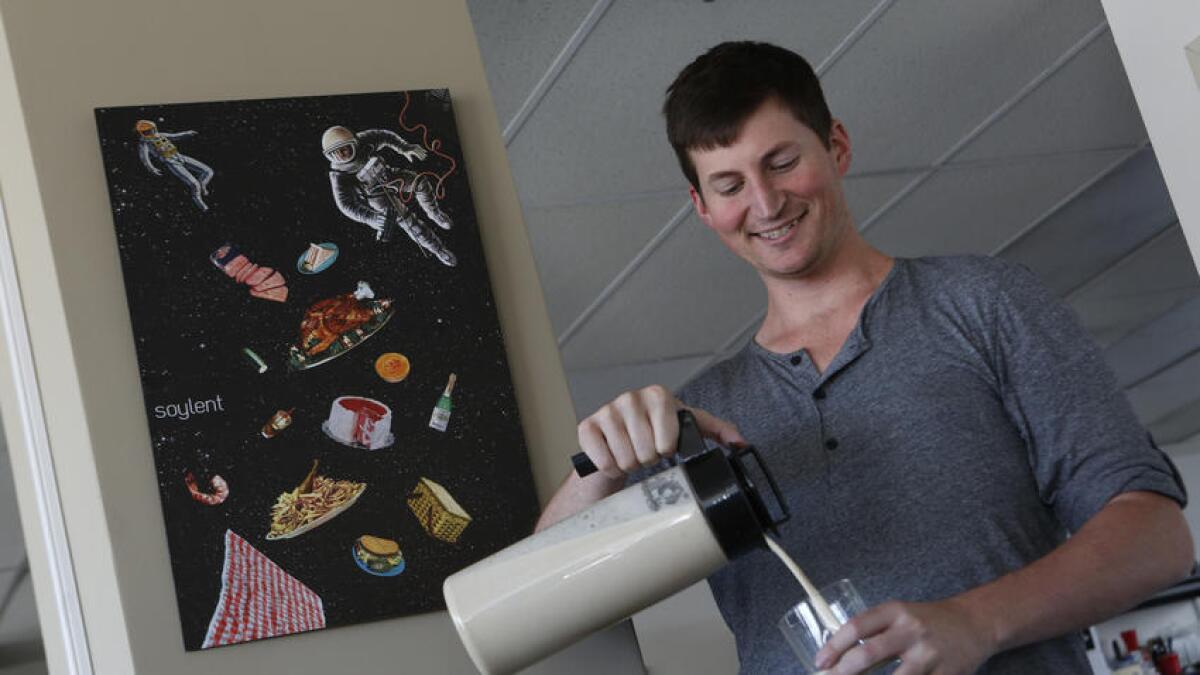Soylent CEO charged over illegal, ‘unsightly’ container home in Montecito Heights

- Share via
A 30-foot-long shipping container that a Los Angeles start-up chief executive tried to turn into a hilltop home has landed him in criminal court.
Rob Rhinehart, who founded meal replacement beverage company Soylent Co., has been charged with unpermitted construction and grading and zoning code violations, the Los Angeles city attorney’s office said Friday. They also charged him with failing to comply with city orders to remove the container.
Since Rhinehart installed what prosecutors called an “experimental living facility” earlier this year, it has become an eyesore — covered in graffiti and strewn with trash. Located on a popular walking destination in Montecito Heights known as Flat Top, the sight has angered neighbors concerned about appearance, safety and security.
READ: Criminal complaint against Rob Rhinehart »
Rhinehart bought the land where the container sits last year. Amid the recent uproar, he vowed to move the structure to a new location. He didn’t immediately respond to a request to comment on the charges. In media interviews, he has complained of a rough neighborhood and the lack of police support to protect the thousands of dollars in improvements he said he made to the area.
He is scheduled to be arraigned Sept. 7 and faces up to two years in jail and $4,000 in fines, prosecutors said.
“Unpermitted structures pose a safety risk,” City Attorney Mike Feuer said in a statement. “They also can be unsightly and erode the quality of life in a neighborhood.”
Rhinehart met with the city attorney’s office last month, but he allegedly refused to remove the container and agree to a timeline for complying, the office says.
Soylent, which produces an all-in-one goopy drink meant to be a quicker alternative to food, has declined to comment on the ongoing situation.
Twitter: @peard33
ALSO
Review: Tesla’s Autopilot makes for a smooth highway cruise
Phone companies could stop robocalls. They’re just not doing it
‘Pokemon Go’ creators working to let real-world locations opt out as Pokestops




